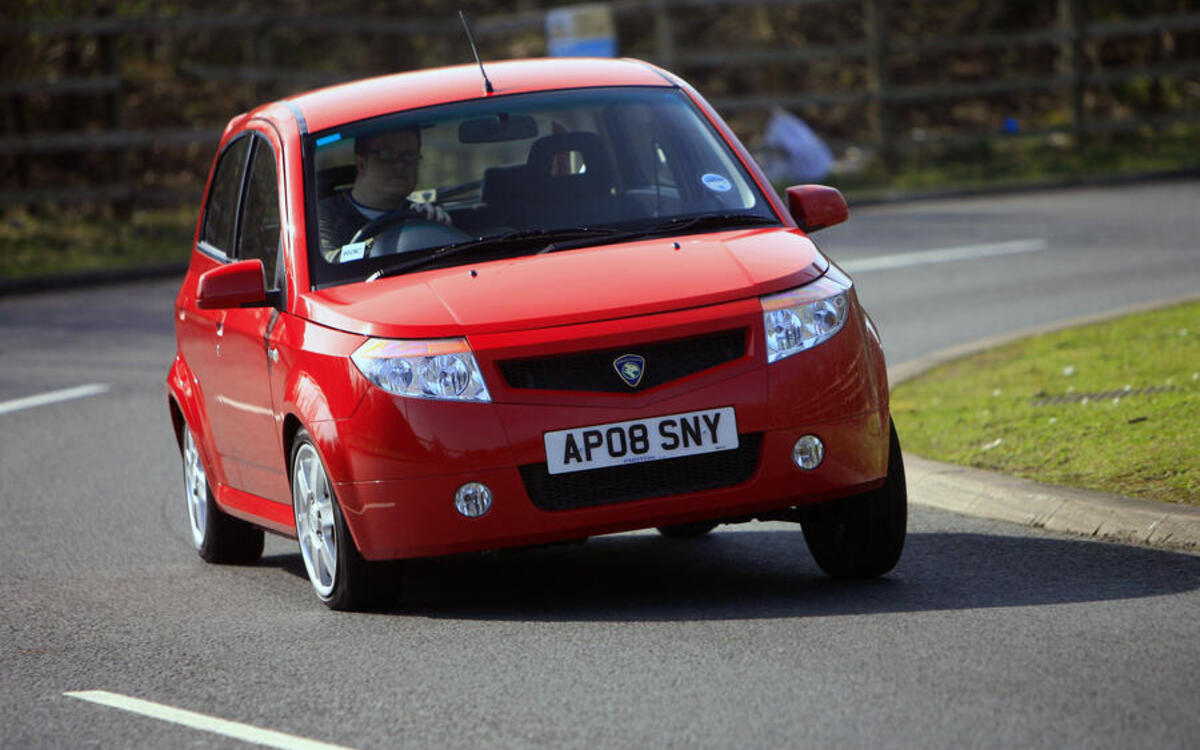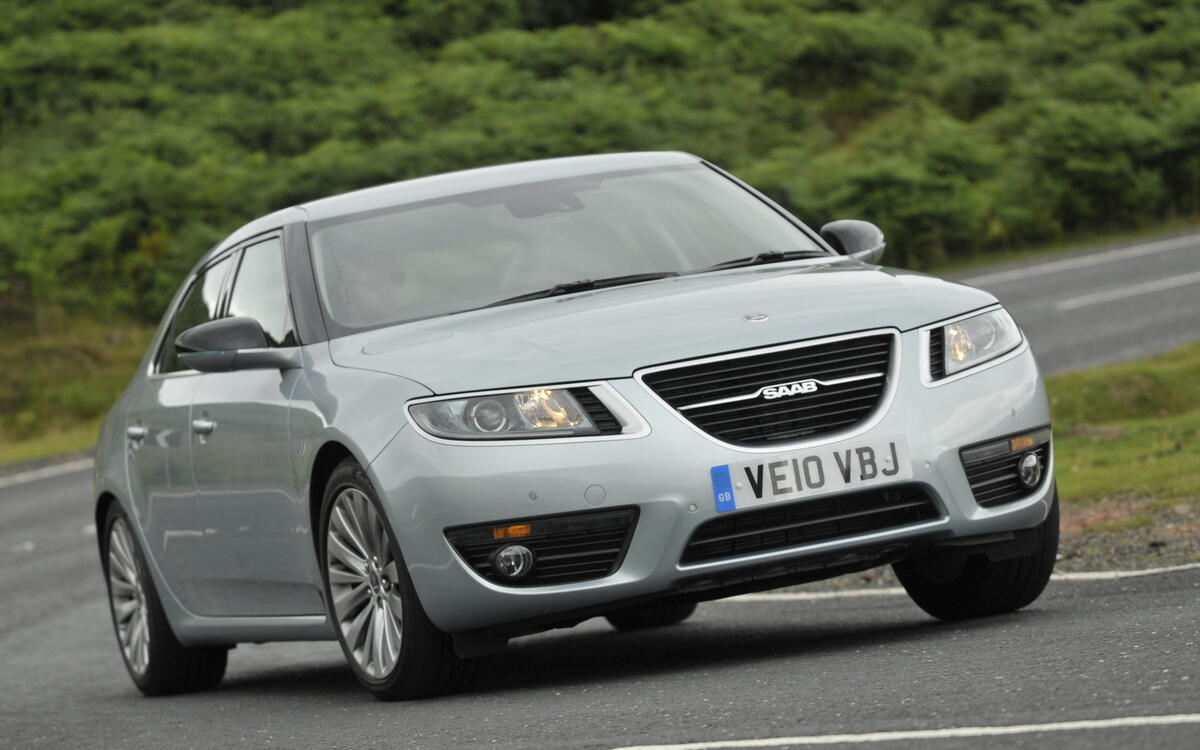 Slide of
Slide of
We live in a time when a new car brand seemingly pops up every week. Perhaps it's a niche sports car maker from the deepest, darkest corner of the UK or an Italian restomod start-up or a Chinese electric vehicle giant looking to pile the pressure on Europe’s stalwart marques.
But over the years, several brands have come and gone. They launched in the UK with high hopes of a long sales future and some lasted for decades and brought joy to millions of motorists. Others struggled to leave their mark and slipped away meekly after just a few years.
All that remains of these marques are the cars they once sold, which are still trundling around our roads. But once these cars have gone and been scrapped, the brand will be officially considered extinct.
So which marques are under threat of extinction in the UK? These are the top 10 brands we think could be next in line, based on figures from Scrap Car Comparison.
 Slide of
Slide of
Daewoo
South Korean brand Daewoo Motors was founded in 1937 and built cars for 65 years before going bankrupt in 2002.
Its remaining assets were bought by General Motors for around $1.2 billion, before the US car giant removed the Daewoo name completely in 2011 and renamed the company GM Korea. Later cars wore the Chevrolet badge.
In the UK, Daewoo sold cars such as the Matiz and Kalos superminis, the Lacetti hatchback and the Nubira saloon. None was particularly great to drive or desirable to own but earned its place in a competitive market.
Daewoo is the brand most likely to become extinct over the next few years. The marque had 55,987 cars registered in the UK back in 2013, but figures suggest that just 2207 cars remain on UK roads as of 2024. That's an eye-watering 96% fall.
Around 1000 of these are the Matiz, with most of the brand’s other models fielding double-digit figures.
 Slide of
Slide of
Proton
Proton sold cars in the UK from 1989 until 2014, including models such as the Satria Neo hatchback, the Savvy supermini and the Gen-2 saloon. None of these cars provided driver rewards, as highlighted by our one-star review of the Gen-2 in 2012.
Despite its uninspiring line-up, the Malaysian firm actually achieved significant success in the UK, which was its most important and successful export market for sales.
After a strong few years, during which Proton was named the fastest-growing new car brand for sales in the UK, the excitement eventually dried up. The brand sold just 208 cars in 2012.
A planned relaunch in 2013 was postponed indefinitely and since then the number of registered cars has dropped significantly. Around 18,589 cars were registered in 2013 but that dropped by 87% to 2352 by the end of 2023.
But hang on: Proton is about to receive some significant Chinese investment, which looks like it could pave the way for the brand to return to the UK. So it might not be the end of the Proton just yet.
 Slide of
Slide of
Rover
We all know Rover, don’t we? The UK brand has been around in one form or another since 1878. (It started its motor vehicle ventures in 1904.) Recent owners of the brand include British Aerospace and BMW before the marque was sold to India’s Tata in 2008. Now, the brand sits dormant.
Rover has a rich history of car manufacturing. It created the Land Rover in 1948 and more recent models include the Rover 75 saloon, the rugged Rover Streetwise and the frankly terrible CityRover.
Around 276,482 Rover cars were registered in the UK in 2013, but that number has dropped dramatically since then. We now have 35,694 Rovers on the road, and while that might not sound like a cause for concern, it’s still a drop of 87% over the past 10 years.
 Slide of
Slide of
Opel
Opel was never a particularly large brand in the UK, mostly because many of its models were badged as Vauxhalls over here.
One well-known car that did bear the badge of the German marque was the Opel Manta, the rear-wheel-drive sports coupé that rivalled the likes of the Ford Capri. Likewise, the Opel Kadett was sold in the UK before the Vauxhall Astra took over its role.
Back in 2013, 7862 Opel cars were registered on UK roads. That number has plummeted by 75% over the past 10 years to 1959. Of course, if you take the number of Vauxhall-badged Opels technically in the UK today, the number would be in the hundreds of thousands, but Opel-badged cars? Just ask yourself when you last saw one on UK roads.
 Slide of
Slide of
Saab
Saab’s roots began with a focus on military hardware, before it moved into car production in 1949. Its first production car was the Saab 92 and it went on to launch more celebrated models such as the 99 Turbo, the 9-3 and the 9-5 Aero.
The brand went bankrupt in 2012 and attempts from China to buy the company were unsuccessful. In the end, a new firm, National Electric Vehicle Sweden (NEVS) sought to buy it and it produced some 9-3 Aero models until mid-2013.
NEVS lost its licence to produce models under the Saab name in 2014, given it was still owned by the overarching Saab aerospace company, but it went on to produce an EV based on the 9-3.
There were 177,285 Saabs on the road in 2013 - a figure that has now dropped to 51,400. That’s a fall of 71% in 10 years. We’re not sure about you, but we’d hate to see Saabs disappear completely.
 Slide of
Slide of
Chrysler
The first American brand on this list. You’ll probably recognise the Chrysler badge in the UK on models including the barge-like 300C, the Grand Voyager MPV and the controversially styled PT Cruiser. There’s also the Chrysler Ypsilon, which was a rebadged Lancia.
The brand, founded in 1925, is now a part of the Stellantis Group, which also includes car companies such as Vauxhall, Peugeot, Jeep, Citroën, DS and Dodge.
Chrysler left the UK in 2017 because its model range no longer appealed to UK buyers and because they put out too much CO2. The number of its cars on our roads has dwindled since.
Of the 77,882 units on the road in 2013, just 23,974 remain. Of those, only 129 of them are the meaty SRT-8 variant, which is powered by a 6.1-litre Hemi V8 with 425bhp.
 Slide of
Slide of
Daihatsu
The UK market was very important for Daihatsu, alongside Germany and the Netherlands. The brand actually launched the first-ever Japanese car in the UK – the Compagno convertible sports car, which arrived in 1963.
The brand achieved strong sales in Europe for many years, powered by the Sirion supermini, the more rugged Terios crossover and the adorable Copen kei sports car.
But it all came crashing down after the 2007-2008 financial crisis and sales dropped from 58,000 in 2007 to 1200 in 2011. The brand left Europe entirely in 2013.
Daihatsu now has just over 17,000 cars on the road in the UK, which is a 68% drop from the 54,000 that were around in 2013. We love kei cars, so seeing the brand go is hard
 Slide of
Slide of
Chevrolet
Chevrolet is one of the world’s biggest car makers, but you might not have seen many around the UK over the past few years. The brand has suffered a mighty 50% drop in the number of registered cars in the UK over the past 10 years, down from 124,821 to 62,670.
Chevrolet’s recent history in Europe is slightly confusing. The brand is owned by GM, which also owned Opel-Vauxhall until 2017, and it sold 200,000 units on the continent in 2013. GM then decided in 2014 to remove Chevrolet from Europe because the brand was cannibalising sales from Opel-Vauxhall.
But Opel-Vauxhall was subsequently sold to what would later become the Stellantis group. However, some of Chevrolet's sports cars, including the Corvette and the Ford Mustang-rivalling Camaro, continued to be sold.
But which Chevrolets can you still see today? Well, there’s the Aveo hatchback, the Captiva crossover, the Cruze (which is basically an Astra) and the Spark. It also produced some cars along with Daewoo, including the Matiz and the Kalos.
 Slide of
Slide of
Dodge
Many drivers might not even have noticed that Dodge was available in the UK, but the brand has actually been around since 1922. It imported parts and assembled trucks here, before building chassis in Kew, west London, in 1933.
Dodge sold cars in the UK through the 1970s before collapsing in 1977, leading to the remaining models being badged as Renaults. It returned in the mid-1990s, with the Chrysler-badged Neon.
The Dodge name returnd to Europe in 2006, with models including the Dodge Journey MPV, the Dodge Nitro SUV and the Dodge Viper SRT-10, which was powered by a staggering 500bhp 8.3-litre V10.
Due to the long recession in the late 2000s, Dodge’s return to Europe was short-lived. The brand left the UK in 2010, before withdrawing from the continent in June 2011. It’s since returned to several markets in Europe as of 2019.
In 2013, there was 15,137 Dodge models registered throughout the UK - a figure that has dropped in 10 years to 8706.
Access control:
Open






















